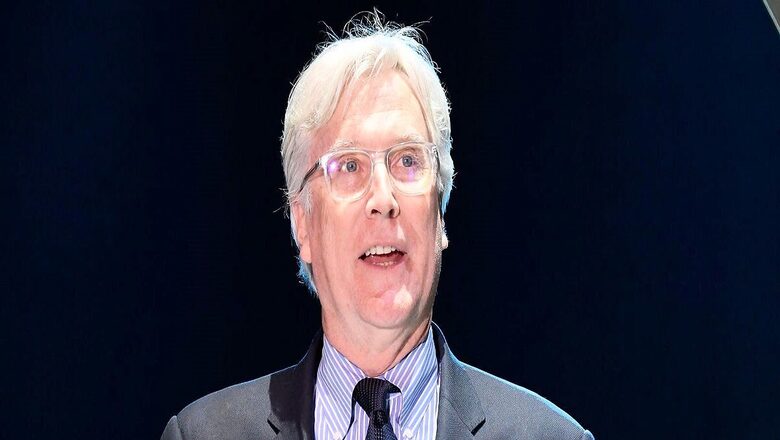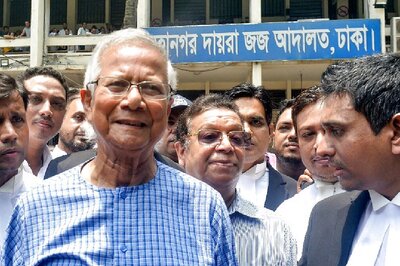
views
Mark Walter, an American businessman and the CEO of the investment firm Guggenheim Partners, is facing criticism for his role in a troubled venture in India. The Gurugram police are looking into Infrastructure India Plc (IIP), a company that collected $320 million (more than Rs 26 billion) since 2011 from organisations associated with Walter and Guggenheim Partners.
The main purpose of the funding IIP obtained since 2011 was to establish a logistical powerhouse that would transport anything from steel frameworks to iPhones across the subcontinent’s railway networks.
Rather, IIP squandered the money on poor land deals, management fees and transactions involving unknown companies owned by the directors of IIP’s biggest subsidiary, according to a Bloomberg Businessweek investigation that was based on numerous documents and dozens of interviews.
With the corporation on the brink of bankruptcy, Indian authorities have been investigating a Businessweek-viewed whistleblower allegation.
According to the same, Rahul “Sonny” Lulla, one of Walter’s previous business associates, embezzled millions of dollars. Lulla disputes any misconduct and asserts that the whistleblower is a spiteful former employee who doesn’t have any proof of the claimed offences.
In a series of emails to Bloomberg, Walter’s attorney, Dan Webb, stated that his client has not been involved in the management of IIP or its Cayman Islands holding company, GGIC Ltd., since 2013.
The records, however, seem to indicate otherwise. As per the investigation report, Walter was one of the company’s three major directors for ten years until 2018, according to the documents he submitted to the Connecticut State Insurance Commission.
Guggenheim currently owns stock in GGIC. Additionally, documents reveal that, even when warning signs surfaced, an offshore company named IIP Bridge Facility LLC, which is partially controlled by Walter, financed IIP $121.5 million between 2019 and May of this year.
Currently, Walter and his partners’ insurance portfolios own $110 million of that debt, which puts them at risk of losses.
According to Webb, the happenings at IIP have not harmed or will not affect any specific policyholder, the Bloomberg report stated.
A reverse takeover was suggested to Infrastructure India’s directors by Tribone and Lulla in February 2011.
The existing shareholders of IIP would contribute £25.5 million (about Rs 188.6 crores at the time) along with a few modest existing holdings.
Meanwhile, GGIC would contribute £7.5 million (about Rs 55.5 crores at the time) along with a 40-year-old logistics company near New Delhi that they changed to Distribution Logistics Infrastructure, or DLI.
To seal the agreement, GGIC was also given a sweetener worth $1.5 million (around Rs 6.9 crore). Once everything was finished, GGIC took over as IIP’s biggest shareholder and board member.
Guggenheim Global Infrastructure Co. (GGIC) was established in 2007 by Walter, Tribone and Lulla with the goal of acquiring ports and power plants, the Bloomberg report mentions.
GGIC surpassed IIP as the company’s largest stakeholder by February 2011. After that, Tribone and Lulla appointed Franklin Park Management to manage the assets, with an annual fee of 2% of IIP’s net asset value.
This action increased IIP’s asset value and costs and in the meantime, IIP, which was financing DLI’s expansion, took on high-interest loans from GGIC and its affiliates.
Franklin Park maintained that the loans were independently authorised and at market rate. Several insurance businesses connected to Walter and his colleagues were subsequently exposed to significant financial risks when IIP-related debt found its way into their portfolios.
Barnet Holdings Ltd. became IIP’s largest stakeholder in 2014 after purchasing shares from IIP for $102 million (about Rs. 469.2 crores at that time).
Barnet’s ownership is still unclear even though it is described as a GGIC associate and has directors in common with Guggenheim firms.
Although Lulla and Tribone said they had no idea who its funders were, Webb declared it has no connection to Guggenheim.
Guggenheim Partners handled assets for insurance firms before the 2008 financial crisis. Following that, it began purchasing these businesses outright, followed by Walter himself.
The company’s executives now had access to enormous money pools, which they used to buy a variety of properties that the insurers had previously shied away from.
In 2013, Guggenheim reorganised GGIC, severed its exclusive rights to the name Tribone and Lulla, and established an internal infrastructure group.
Walter kept his connections intact, with Guggenheim holding a 10% share in GGIC.
IIP survived on loans from businesses associated with Walter. According to Webb, GGIC, which owns around 25% of IIP, serves only as a financing vehicle.
Tribone and Lulla are in charge of both GGIC and IIP, which together form a complicated financial web.
IIP had a financial problem in the middle of 2018 due to loans from Indian lenders and GGIC that were around $100 million (Rs 740 crores at that time) apiece.
The $30 million (around Rs 222 crores) that was obtained through the sale of a toll road was swiftly spent.
A suspension of interest payments was agreed upon by creditors, but debts kept mounting.




















Comments
0 comment